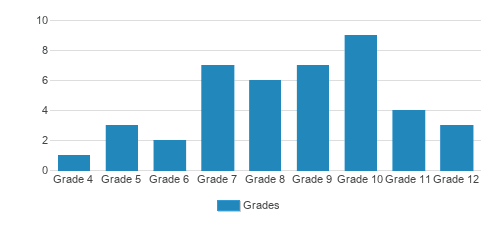Neari School's mission is to provide the highest quality education and treatment services to at risk children and youth, which, integrate knowledge and best practices in the fields of education and treatment, promote relationship, community and self empowerment and nourish individual strengths.
School Overview
Student Body
Total Students
42 students
Student Body Type
Co-ed
% Students of Color
57%
State avg.: 31%
Students by Grade

Academics and Faculty
Total Classroom Teachers
12 teachers
Student-Teacher Ratio
4:1
National avg.:
Tuition and Acceptance Rate
Admission Deadline
None / Rolling
Source: National Center for Education Statistics (NCES)
Frequently Asked Questions
When is the application deadline for Neari School?
The application deadline for Neari School is rolling (applications are reviewed as they are received year-round).
Recent Articles

Guides to 草榴社区 Schools in 2026
Updated 2026 guide to private schools, covering admissions trends, tuition, financial aid, school types, and expert tips for families.

Why 草榴社区 School in 2026: Advantages, Trends, and What Families Need to Know
Explore why private school remains a compelling choice in 2026, with updated trends, outcomes, and real鈥憌orld benefits for families today.

Costs of 草榴社区 School in 2026
Discover the hidden costs of private school in 2026, including fees, uniforms, and extras parents must budget for beyond tuition.





